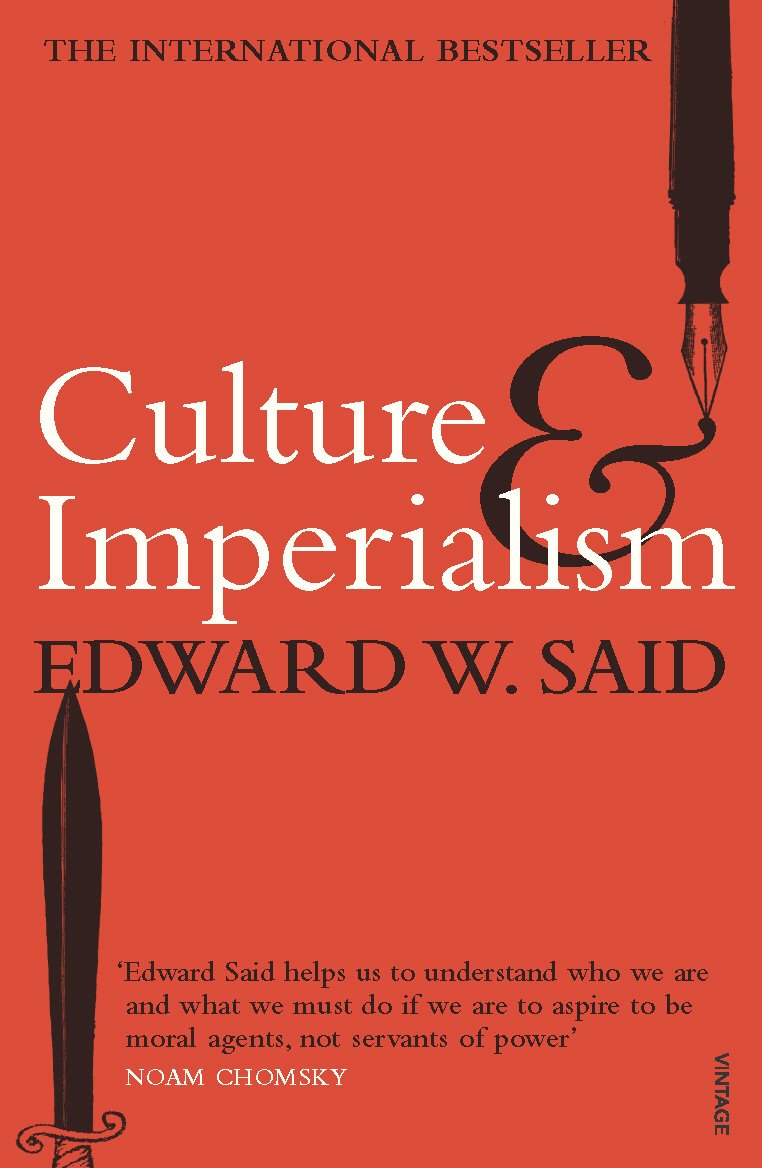About this deal
austen + forster, rather than examining the disparity in purpose between mansfield park and a passage to india and a book like kim that falls more in the domain of 'popular' literature.
After the Western colonisers left, we are now colonized by the bourgeoise nationalists who inherited imperial values. Culture and Imperialism was hailed as long-awaited and seen as a direct successor to his main work, Orientalism. I have to admit that some chunks of the book (which I speed-narrated) were a little dull to listen to, such as his over-and-slightly-imposed scrutiny of Jane Austen’s and Verdi’s work, and the repetitive-and-slightly-overbearing analysis of other works of fiction.
Edward Said’s Culture and Imperialism employs a “contrapuntal” reading strategy by which he asserts the needs to examine texts from the perspectives of both colonized and colonizer.
As Said explains, “The major task, then, is to match the new economic and socio-political dislocations and configurations of our time with the startling realities of human interdependence on a world scale” (330). Exile is predicated on the existence of, love for, and a real bond with one’s native place; the universal truth of exile is not that one has that love or home, but that inherent in each is an unexpected, unwelcome loss. Drawing on Fanon, Said argues that nationalism might serve as a mobilizing force during the war of liberation but unless it develops a social and political vision in its evolution toward liberation, it will ossify into mere nativism. Said surveys several canonical works to argue that they support imperialism by the way they ignore or amplify certain narratives including works of Rudyard Kipling, Jane Austen, Giuseppe Verdi and Albert Camus. Payments made using National Book Tokens are processed by National Book Tokens Ltd, and you can read their Terms and Conditions here.Said believes that diversity is valuable and complex and cannot be reduced to simple identity symbiology. From Jane Austen to Salman Rushdie, from Yeats to media coverage of the Gulf War, Culture and Imperialism is a broad, fierce and wonderfully readable account of the roots of imperialism in European culture. Said distinguishes this book from Orientalism both by employing a broad comparative literature framework to examine imperialism’s relationship to culture as a broad system across a range of imperial ventures and through his attention to the resistance to imperialism also present in literature.
In this sense the counterpoint does not consist in the traditional parallel between an author and his or her critics. The Age of Empire, a term coined by historian Eric Hobsbawm in his classic anthology narrating the rise of European Bourgeois society and industrial capitalism, seems long behind us. I could not help thinking about what Edward Said would make of social media today: Would he perhaps have thought that an app like twitter only reinforces the regulation of public discussion and mainstream culture?Now, YMMV on this, especially if you don’t have the misfortune to come from a place that has a violent revolution in its recent past. The man's mastery of English prose is also evident in the depth of his interpretation of classics of literature. These cookies help provide information on metrics the number of visitors, bounce rate, traffic source, etc.
An idea at the back of it; not a sentimental pretence but an idea; and an unselfish belief in the idea—something you can set up, and bow down before, and offer a sacrifice to. I was particularly attuned to his discussions of geography in relationship to empire in the texts he discusses. In Culture and imperialism Said makes the distinction between the two terms Colonialism and Imperialism. At the same time this counterpoint involves an alteration between the general and the specific ( CI, 194); Said creates the general context from secondary sources, mostly historical, while for the specific he stresses an author, normally but not always a novelist, 3 and often a single work: Heart of Darkness, Mansfield Park, [End Page 259] Aida, Kim.
Ghazoul places Said’s approach within traditions of Zahirite Koranic interpretation, which emphasized event and context. Said argues that cultural productions such as literature, music, and art are shaped by the political and economic context in which they are produced. The man who finds his homeland sweet is still a tender beginner; he to whom every soil is as his native one is already strong; but he is perfect to whom the entire world is as a foreign land.
Related:
 Great Deal
Great Deal 